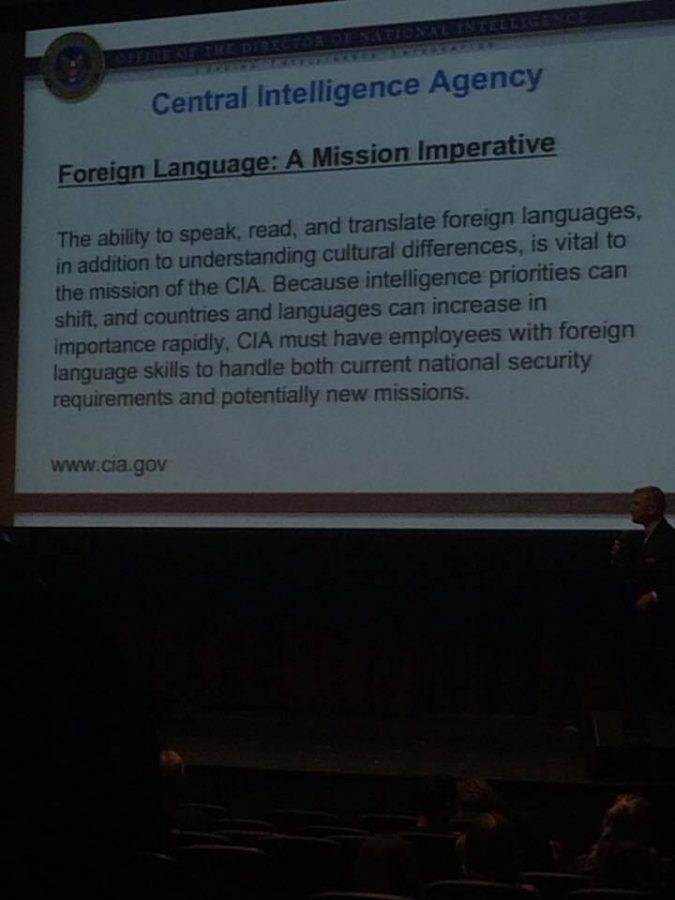Don Gentile, senior language authority at the United States Director of National Intelligence (DNI) Foreign Language Program Office, described career paths in the Intelligence Community (IC) that involve using foreign languages in the auditorium last Monday E-block and F-block.
Gentile explained the importance of learning different languages and the ways in which one could apply such a skill later on in the professional world.
“You can be the smartest person in the world, but if you can’t communicate, you’re going to fall behind,” he said.
Gentile grew up in Newton, and attended Newton High School, where he took Latin and French. Although he knew that he had a passion for language, he decided not to pursue it in high school.
“My whole life was well-balanced; sports, academics, extracurriculars,” he said. “I didn’t want to specialize in languages at that point in my life.”
At Colby College, however, things changed for Gentile. He double majored in Spanish and French, and eventually got his master’s degree in Spanish from Middlebury College, which he called “one of the better language schools in the country.”
Learning how to communicate better is just one of the many benefits to learning a new language, according to Gentile. “With more than one language up your sleeve, it’s becoming much easier to make a living,” he added.
In a slideshow presentation, Gentile listed various departments in the Intelligence Community that require multilingual individuals, including The Federal Bureau of Investigation (FBI), the Central Intelligence Agency (CIA), the Department of State, and the National Security Agency (NSA).
While there are many opportunities to enter the field, Gentile added that having a job like his is not easy. “It’s quite challenging,” he said. “It’s complex, but it’s interesting, and I enjoy doing it.”
According to Gentile, in order to enter the field one must be a U.S. citizen. Additionally, each employee must undergo a background investigation and routine polygraph exams throughout their career. “We’re dealing with the country’s security,” he said. “We need to know that these are trustworthy people we’re employing.”
There are many specialized jobs for each department, said Gentile, but there are also some that are common to most departments. Jobs like these include, but are not limited to, language analyst, linguist, interpreter, translator, instructor, test developer, and foreign media analyst.
“Working with foreign languages takes a certain passion and desire,” added Gentile. “If it’s something you love doing, there’s a future in it for you.”
Guest speaker offers students glimpse into Intelligence Community career paths
May 3, 2017
Donate to The Newtonite
More to Discover
















































